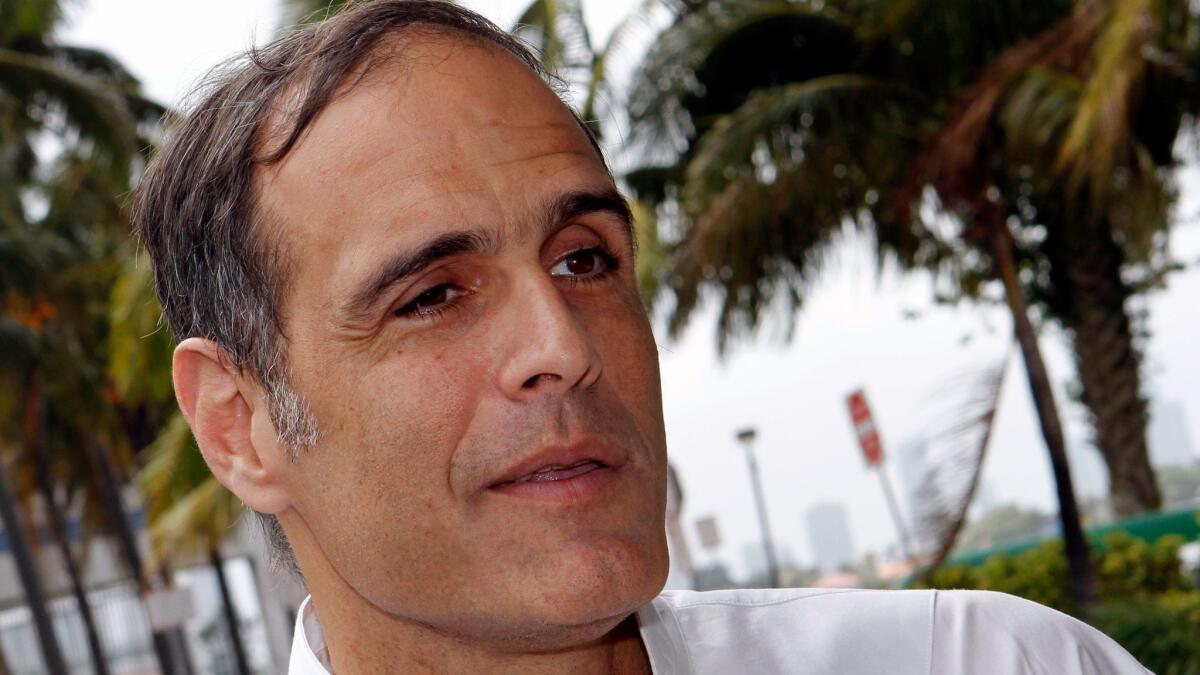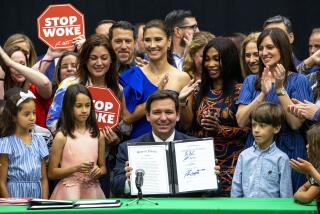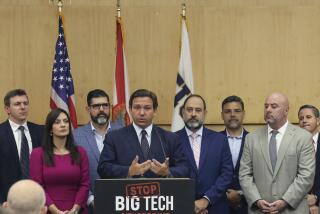Editorial: Citizens who are targeted for speaking up should be allowed to sue

Elected officials understandably resent citizens who show up at public meetings and hurl abuse at them. But if the 1st Amendment means anything, government officials shouldn’t be able to punish dissenters, even rude ones, by selectively subjecting them to arrest — even if the arrest might be justified on other grounds.
This week the Supreme Court agreed to hear a case from Florida that could lead to an affirmation of that principle. Fane Lozman, who lived on a “floating home” at the Riviera Beach Marina, was a longtime critic of the city’s plan to redevelop it. In 2006, after he filed a lawsuit challenging the plan, a member of the City Council suggested that action be taken to “intimidate” Lozman.
Several months later, after Lozman denounced “corrupt” politicians at a council meeting, that same council member summoned a police officer who arrested Lozman for disorderly conduct and resisting arrest. The state’s attorney concluded that there was “probable cause” — legitimate, evidence-based grounds — for the arrest, but dropped the charges because there was “no reasonable likelihood” of a conviction.
Lozman then filed a federal civil-rights claim arguing that his arrest was retaliation for the exercise of his 1st Amendment rights. After losing at the trial level, he appealed to the U.S. 11th Circuit Court of Appeals. That court acknowledged that Lozman seemed to have established a connection between the council member’s animus toward him and his arrest. But the court said that didn’t matter — he couldn’t recover damages because there had been probable cause for his arrest.
The U.S. 9th Circuit Court of Appeals, which hears cases from California and other Western states, has taken the opposite position. It’s the correct one, and the Supreme Court should adopt it as a national rule to make it harder for government officials, especially at the local level, to go after their critics. Without such a rule, officials will be tempted to order pretextual arrests — perhaps for minor offenses — to deter critics from speaking out. As the First Amendment Foundation pointed out in a friend-of-the-court brief supporting Lozman: “The potential chilling effect is especially acute in smaller towns and cities across America, where vocal critics often continuously interact with local officials and are therefore at risk of retaliation.” (Another characteristic of small municipalities is that police officials are likely to have close relations with political leaders.)
The fact that an arrest may be justified by probable cause doesn’t prevent courts from inquiring into whether that arrest is motivated by racial animus. Judges and juries should be similarly free to look behind “probable cause” for evidence that an arrest is an act of retaliation for political speech.
Follow the Opinion section on Twitter @latimesopinionand Facebook
More to Read
A cure for the common opinion
Get thought-provoking perspectives with our weekly newsletter.
You may occasionally receive promotional content from the Los Angeles Times.






